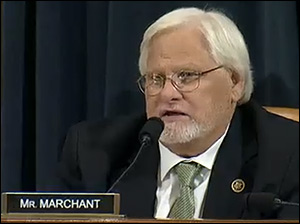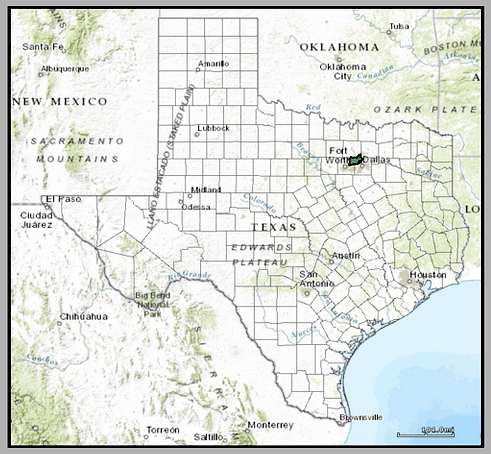By Jim Ellis

Texas Rep. Kenny Marchant (R-Coppell/DFW area)
The 24th District has been a focal point of the Texas congressional scene since Democrats position the seat high on their conversion opportunity list because of its close 2018 result. Despite Democratic nominee Jan McDowell spending less than $100,000 on her campaign, she came within a 51-48 percent margin of upsetting the veteran congressman, a difference of approximately 8,100 votes.
The vote drop-off from the 2016 presidential year, as it relates to turnout, was only four percent in 2018 compared to 42 percent when contrasting the 2014 midterm to the 2012 presidential election year, thus partially explaining why the latest results are so different.

Texas Congressional District 24, currently represented in the US House by Kenny Marchant.
Over his eight elections, Marchant averaged 61.8 percent of the vote, but 58.2 percent since the district was drawn in its present fashion from as part of the 2011 redistricting process.
Area-wise the CD is small and surrounds DFW Airport, encompassing the cities of Grapevine, Carrollton, Coppell, Farmers Branch, and Euless. The district touches four state Senate districts and nine House seats, but the vast majority of the population resides in four of the latter districts.
Republicans represent two of the affected Senate districts while Democrats control the remaining two. The district with the largest overlap, SD-16 with approximately 320,000 constituents in common, is now represented by Democrat Nathan Johnson who first won the seat this past November. On the Republican side, perhaps the most logical option is Sen. Kelly Hancock, but he only represents slightly more than 21 percent of the congressional constituency.
From the state House, freshman Democrat Julie Johnson represents CD’s the largest section. The Republican with the largest overlapping constituency is state Rep. Jonathan Stickland, but he has already announced that he is not seeking re-election to the legislature. Former Irving Mayor Beth Van Duyne (R) immediately made public her intention to jump into the open congressional race per Marchant’s announcement, but her city is no longer in the 24th.
McDowell, the ’18 Democratic nominee, had announced her intention to run again, and she was joined by former state Agriculture Commission nominee Kim Olson, two local school board members, two attorneys, and a research scientist in what was already becoming a crowded Democratic primary. Olson was recruited into the congressional race because she fared well in a losing statewide effort this past November.
The House open list now grows to 16, up from 10 when Rep. Paul Mitchell (R-MI) began the retirement parade on July 24th. The list includes the two vacant North Carolina seats that will be filled in respective Sept. 10 special elections. Majority Democrats are only risking three of these open CDs.
